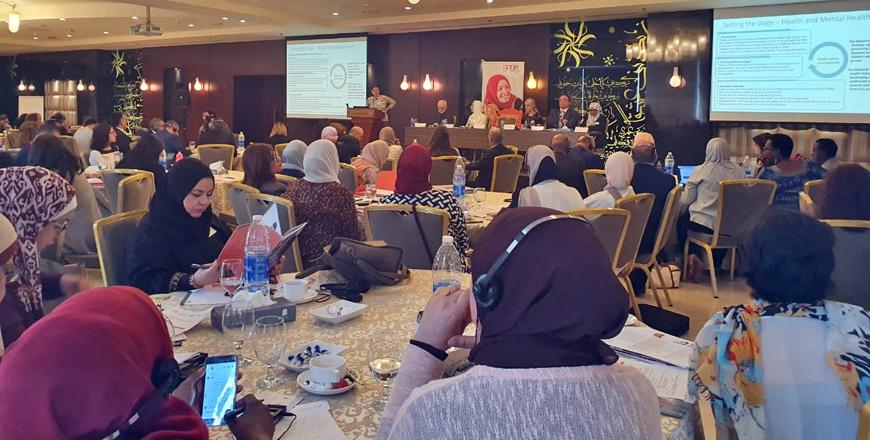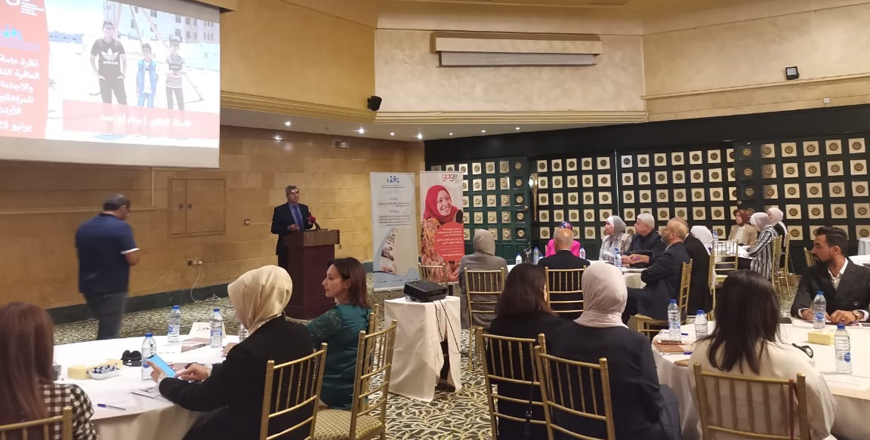You are here
Report focuses on efforts to support youth, adolescents
By Maria Weldali - Jul 26,2022 - Last updated at Jul 26,2022
AMMAN — Commitment to better lives, family support and financial motivation are among the factors that have shaped the economic empowerment of “positive outlier youth”, who have achieved success despite obstacles, according to the Youth Economic Security, Skills and Empowerment report.
Launched during a ceremony on Tuesday by the Information and Research Centre - King Hussein Foundation (IRCKHF) together with the Overseas Development Institute (ODI), the report focuses on efforts to support youth to realise their potential in line with the commitments of the Sustainable Development Goals (SDGs) and the Global Compact on Refugees.
Capturing the aspirations and experiences of female and male youth aged between 15 and 24, who come from Syrian and Palestinian refugee communities, as well as vulnerable Jordanians, the report shows that “adolescents’ access to decent and age-appropriate employment is deeply gendered”.
The report pointed out that gender gap results from social norms that position boys as providers and girls as in need of protection.
The report is part of the Gender and Adolescence: Global Evidence (GAGE) project, a nine-year project (2015-2024) that follows the lives of 20,000 adolescents in six low and middle income countries, including Ethiopia, Rwanda, Bangladesh, Nepal, Jordan and Lebanon.
The broader project is funded by UK Aid, while the study was co-funded by Global Affairs Canada, according to an IRCKHF statement sent to The Jordan Times on Tuesday.
Speaking during the ceremony, IRCKHF Director Ayman Halaseh indicated that the centre’s objectives correspond to the aims of the ODI, noting that the report focuses on key economic and educational success factors that positively contribute to young refugee adolescents’ livelihoods.
He added that “the launching of this report is timely and comes in line with Jordan’s second voluntary national review submission of the sustainable development goals to the United Nations.”
Principal Research Fellow at the ODI and Director of GAGE Nicola Jones, said: “The unique contribution of this report is its focus on positive outliers or in other words young people who through a combination of individual drive, inspirational teachers, supportive parents and financial support were able to achieve educational and economic success.”
In conclusion, the report highlighted the need to address gender norms that leave girls with little access to higher education, paid employment, through raising their aspirations and strengthening their communication.
Additionally, the report emphasised the importance of expanding access to vocational training, financial literacy and business management skills.
Related Articles
AMMAN — Exploring adolescent experiences amongst the most vulnerable children and adolescents in Jordan from refugee camps, informal tented
AMMAN — Adolescents living in Jordan need stepped-up psychosocial support — both formally and informally — if they are to thrive, according
AMMAN — The Gender and Adolescence: Global Evidence Programme (GAGE), an international longitudinal research programme funded by UK aid and



















